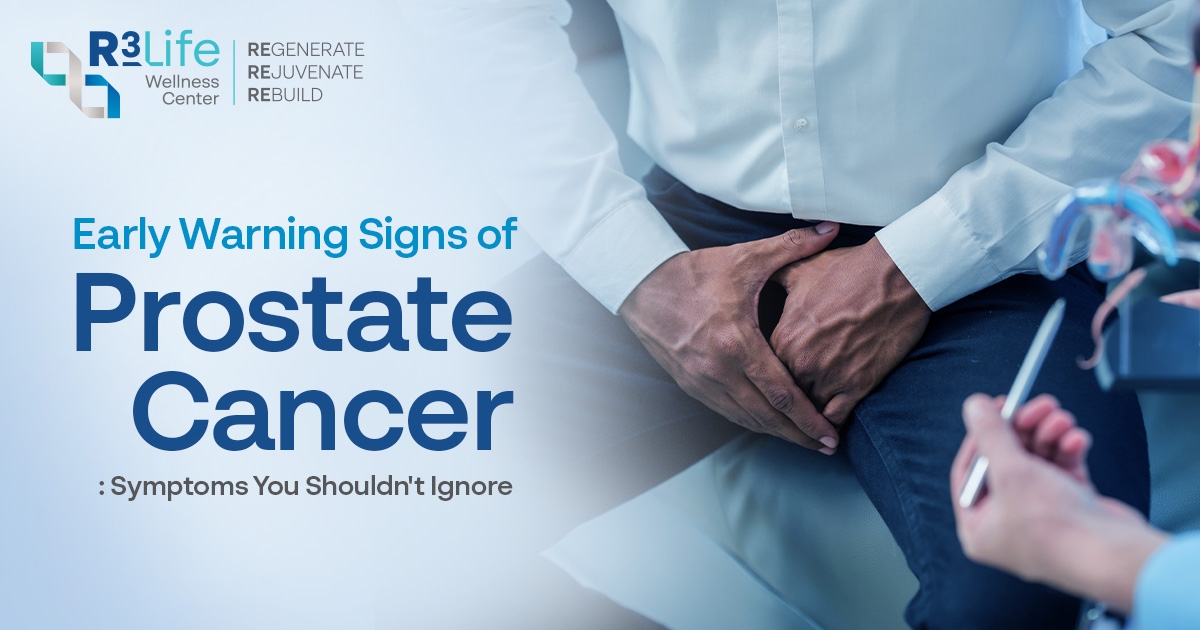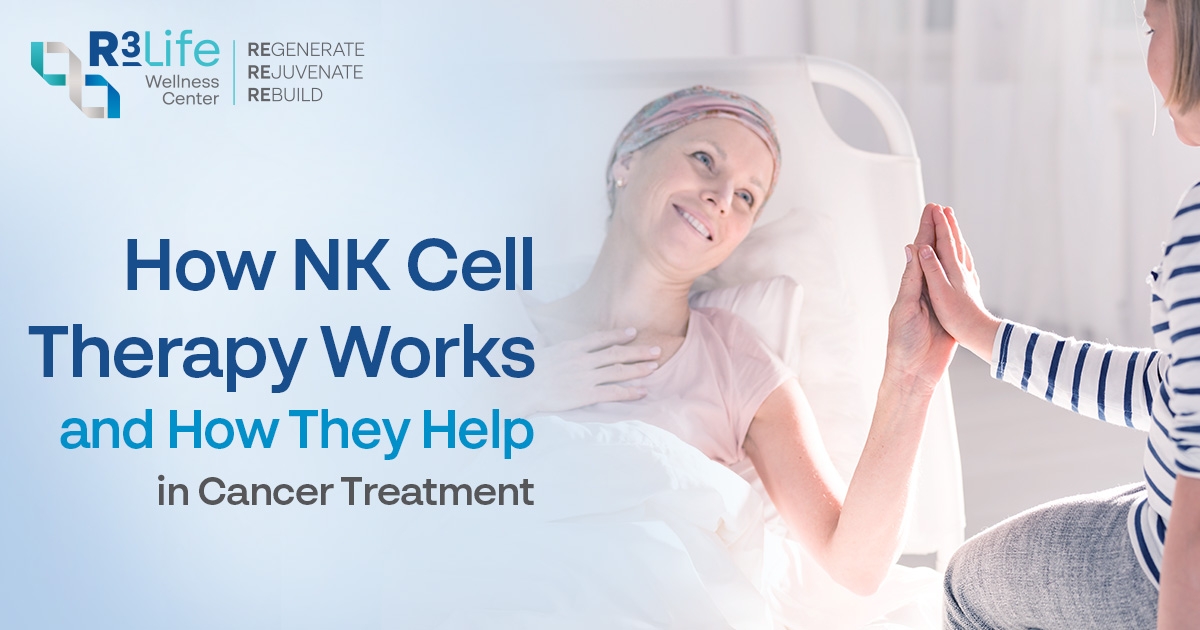What causes prostate cancer? Early warning signs & risks
What causes prostate cancer? Early warning signs & risks
Prostate cancer is the second most common cancer in men, affecting 1 in 8 males during their lifetime. The good news? When caught early, survival rates exceed 99%. That's why knowing the warning signs and risk factors is so important.
What Is the Prostate?
The prostate is a walnut-sized gland below the bladder that surrounds the urethra in men. It produces fluid that nourishes and protects sperm. As men age, the prostate often undergoes changes that can affect urination and sexual function.
What Causes Prostate Cancer?
While doctors can't pinpoint one exact cause, several factors contribute to prostate cancer development:
Genetic Factors
- Family history Having a father or brother with prostate cancer doubles your risk
- Gene mutations Inherited changes in genes like BRCA1, BRCA2, and HOXB13 increase risk
Hormonal Factors
- Testosterone Male hormones, especially testosterone and DHT, fuel prostate cell growth
- Hormone imbalances Changes in hormone levels as men age may trigger abnormal cell growth
Lifestyle Factors
- Diet High consumption of red meat and animal fat may increase risk
- Obesity Extra body weight is linked to more aggressive forms of prostate cancer
- Lack of exercise Regular physical activity appears protective against prostate cancer
The bottom line: Most prostate cancers likely develop from a combination of genetic, hormonal, and lifestyle factors rather than a single cause.
What Causes a Large Prostate (BPH)?
Nearly half of men over 60 develop benign prostatic hyperplasia (BPH) - non-cancerous prostate enlargement. BPH is different from prostate cancer but can cause similar symptoms.
Main Causes of BPH
- Age-related hormone changes As men age, the balance between testosterone and estrogen shifts
- DHT hormone This powerful testosterone derivative stimulates prostate cell growth
- Metabolic health Obesity, diabetes, and high blood pressure increase BPH risk
- Inflammation Chronic inflammation in the prostate contributes to enlargement
- Genetics Family history plays a role in BPH development
Unlike cancer, BPH doesn't spread to other parts of the body, but it can significantly impact quality of life through urinary symptoms.
Prostate Cancer Risk Factors
Knowing your risk factors helps determine when to start screening:
Factors You Can't Control
- Age Risk rises significantly after 50; average diagnosis age is 66
- Family history Risk doubles with one close relative with prostate cancer
- Genetic mutations BRCA1/2 and other inherited gene changes increase risk
Factors You Can Control
- Diet Limit red meat and high-fat dairy; increase plant foods
- Physical activity Regular exercise reduces risk by up to 30%
- Weight Maintain healthy weight to lower risk of aggressive prostate cancer
- Smoking Quitting smoking reduces cancer risk across the board
Talk to your doctor about earlier screening if you have multiple risk factors, especially those you can't control.
What Are the Warning Signs of Prostate Cancer?
Early prostate cancer often causes no symptoms, which makes regular screening crucial. When symptoms do appear, they may include:
Urinary Symptoms
- Frequent urination, especially at night
- Weak urine stream or stopping and starting
- Difficulty starting urination
- Feeling that you can't completely empty your bladder
- Burning or pain during urination
Other Warning Signs
- Blood in urine or semen
- Painful ejaculation
- Erectile dysfunction (new onset)
- Pain in lower back, hips, or upper thighs
- Unexplained weight loss
Important: These symptoms can also be caused by BPH or other conditions. Don't panic, but do see your doctor promptly.
BPH vs. Prostate Cancer: Key Differences
Both conditions can cause similar symptoms but are fundamentally different:
How to Reduce Your Risk of Prostate Problems
While you can't prevent all prostate problems, you can lower your risk with these science-backed strategies:
For Both Prostate Cancer and BPH Prevention
- Eat more plants Aim for 7+ servings of fruits and vegetables daily
- Choose healthy fats Replace saturated fats with olive oil, nuts, and avocados
- Stay active Aim for 30+ minutes of exercise most days
- Maintain healthy weight Excess weight increases risk of both conditions
- Limit alcohol No more than 1-2 drinks per day
- Don't smoke Or quit if you do – smoking worsens both conditions
Foods That Support Prostate Health
- Tomatoes (cooked with olive oil for best lycopene absorption)
- Broccoli, cauliflower and other cruciferous vegetables
- Fatty fish rich in omega-3s (salmon, sardines)
- Green tea
- Berries and pomegranates
- Nuts and seeds
Regular check-ups with your doctor remain essential for early detection and treatment.
How Does Prostate Cancer Grow and Spread?
Prostate cancer typically grows slowly. Many men, particularly older ones, may have small cancers that never cause problems in their lifetime.
Growth Timeline
- Low-risk prostate cancer May take 10+ years to cause serious problems
- Intermediate-risk May progress within 5-10 years
- High-risk Can spread within 2-5 years without treatment
How Doctors Determine Growth Rate
- Gleason score Rating system (6-10) for how aggressive the cancer looks under microscope
- PSA doubling time How quickly PSA levels rise
- Stage How far the cancer has spread at diagnosis
- Grade Group Modern classification system (1-5) that predicts behavior
For many men with low-risk prostate cancer, doctors now recommend "active surveillance" rather than immediate treatment.
How Doctors Diagnose Prostate Cancer
Several tests help doctors detect and diagnose prostate cancer:
Initial Screening Tests
- Digital rectal exam (DRE) Doctor checks prostate for abnormalities
- PSA blood test Measures prostate-specific antigen levels
- Normal: Generally under 4 ng/mL
- Borderline: 4-10 ng/mL
- Elevated: Above 10 ng/mL (but can have non-cancer causes)
Follow-up Tests If Screening Raises Concerns
- MRI scan Creates detailed images of the prostate
- Prostate biopsy Removes small tissue samples to check for cancer cells
- Additional blood tests Free PSA percentage, 4Kscore, or other markers
Tests If Cancer Is Confirmed
- Bone scan Checks if cancer has spread to bones
- CT scan or PET scan Looks for spread to lymph nodes or other organs
- Genomic testing Analyzes cancer genes to predict aggressiveness
Current guidelines recommend discussing PSA screening with your doctor at:
- Age 45 for high-risk men (African American or family history)
- Age 50 for average-risk men
Prostate Cancer Treatment Options
Treatment depends on cancer stage, grade, your age, and overall health:
For Low-Risk, Early-Stage Cancer
- Active surveillance: Regular monitoring without immediate treatment
- Surgery: Removal of the prostate (radical prostatectomy)
- Radiation therapy: External beam or radioactive seed implants (brachytherapy)
For Intermediate or High-Risk Cancer
- Surgery plus possible radiation afterward
- Radiation therapy plus hormone therapy
- Combination approaches tailored to your specific case
For Advanced or Metastatic Cancer
- Hormone therapy: Reduces testosterone that fuels cancer growth
- Chemotherapy: Drugs that kill fast-growing cells
- Immunotherapy: Boosts your immune system to fight cancer
- Targeted therapies: Attack specific weaknesses in cancer cells
- Clinical trials: Access to newest treatments
The human body is a delicate matter. Even identical twins require different medical care. We recommend consulting a doctor first to discuss the pros and cons in detail.
Natural Protector Therapy: An Advanced Immunotherapy Option
Natural Protector Therapy represents an innovative approach using your body's own immune cells to target cancer. Benefits include:
- Fewer side effects compared to conventional treatments
- Can be combined with other therapies
- May help when other treatments haven't worked
How to Ensure Quality NK Cells Therapy: What to Look for in a Safe and Effective Treatment
At R3 Life Wellness Center, we don't just offer treatments - we offer exceptional quality and peace of mind. When choosing NK Cells therapy, ensure your provider meets these critical standards for optimal results and safety.
Essential 5-Point Checklist:
- Elite Medical Leadership A distinguished medical team providing personalized, premium care exclusively tailored for you
- International Laboratory Excellence Internationally certified with UK NEQAS, NSRL France, Loom Class 100, ISO Class 8, ISO 15189 for accurate results and exceptional lab quality standards
- Exclusive Advanced Technology Exclusive Flow Cytometry Technology available only at R3 Life in Thailand with advanced methodology for NK Cells testing
- Global Standard Certification Certified ISO 20387, representing the highest global standard in biobank accreditation
- World-Class Luxury Treatment Standards Premium quality products based on international expertise from Canada and Denmark, ensuring the most sophisticated standards in luxury wellness treatment and care
At R3 Life, we combine advanced medical expertise with luxury wellness standards, ensuring you receive not just treatment, but comprehensive care backed by international certifications and exclusive technology.
Frequently Asked Questions
How quickly does prostate cancer spread?
Most prostate cancers grow slowly. Low-grade prostate cancer (Gleason 6) may take 10-15 years or more to spread beyond the prostate if left untreated. Higher-grade cancers (Gleason 8-10) can spread more quickly, potentially within 2-5 years. Your doctor can assess your specific case.
Can prostate cancer be cured?
Yes, especially when caught early. Localized prostate cancer has a nearly 100% 5-year survival rate. Treatment options like surgery and radiation offer high cure rates for early-stage disease. Even advanced prostate cancer can often be managed effectively for many years.
At what age should men start prostate cancer screening?
- Age 45: For high-risk men (African American men or those with family history)
- Age 50: For men at average risk Screening typically involves PSA blood tests and possibly digital rectal exams. Discuss with your doctor what's right for you.
Is prostate cancer hereditary?
Yes, partly. Men with a father or brother with prostate cancer have double the risk. The risk increases further with multiple affected relatives. Specific gene mutations like BRCA1, BRCA2, and HOXB13 can be inherited and significantly increase risk.
What foods should I avoid with prostate cancer?
Limit these foods:
- Red and processed meats
- Dairy products high in fat
- Fried foods
- Alcohol (especially in excess)
- Sugary foods and drinks Instead, focus on fruits, vegetables, whole grains, and healthy fats from fish, olive oil, and nuts.
Take Action for Your Prostate Health
Don't wait for symptoms to appear. Taking these steps can help protect your prostate health:
- Schedule a prostate screening if you're over 50 (or 45 for high-risk men)
- Improve your diet with more plant foods and less processed items
- Stay physically active with regular exercise
- Maintain a healthy weight
- Know your family history and share it with your doctor


 Do you know about NK cells? Natural cancer protection
Do you know about NK cells? Natural cancer protection

